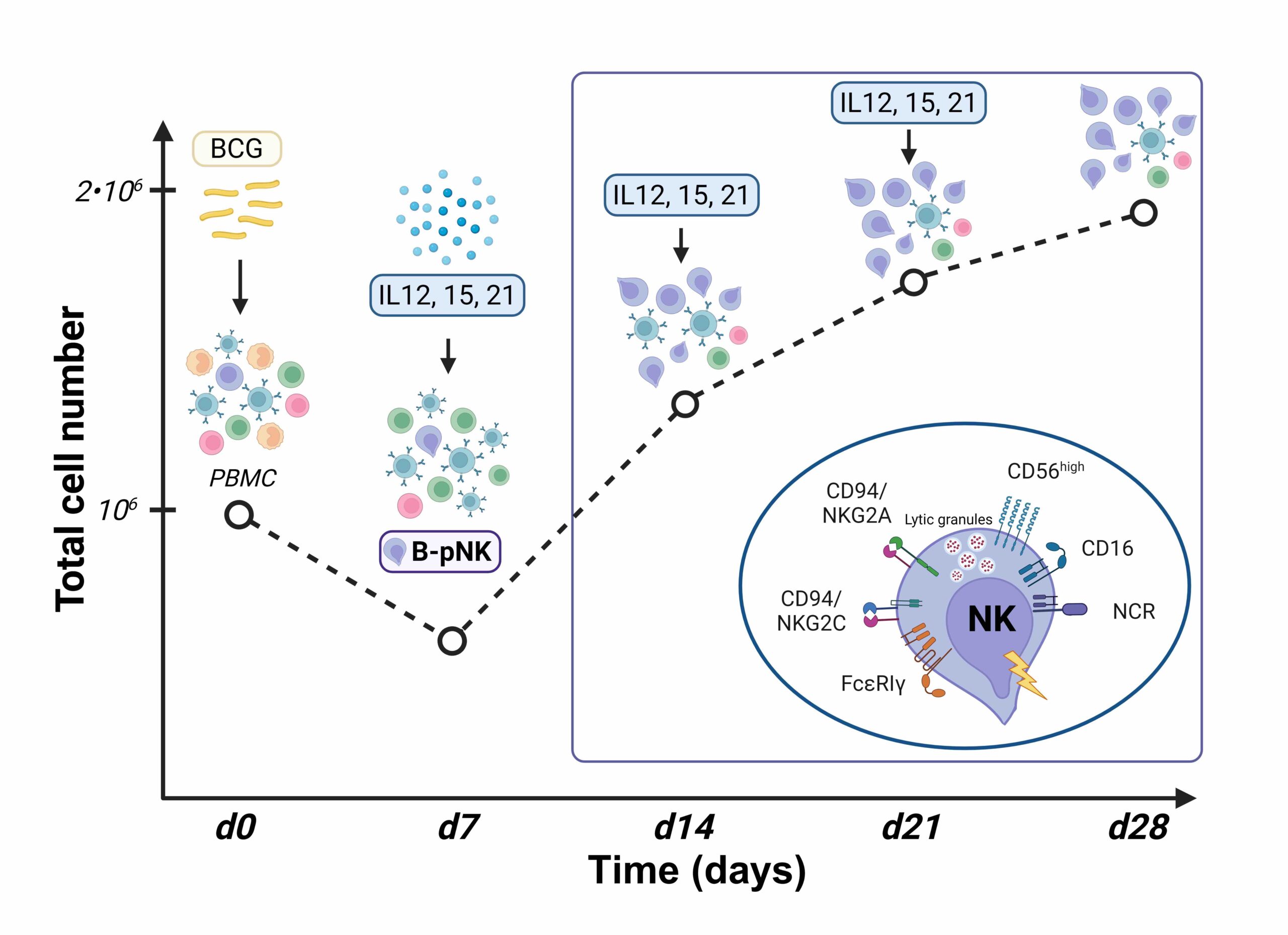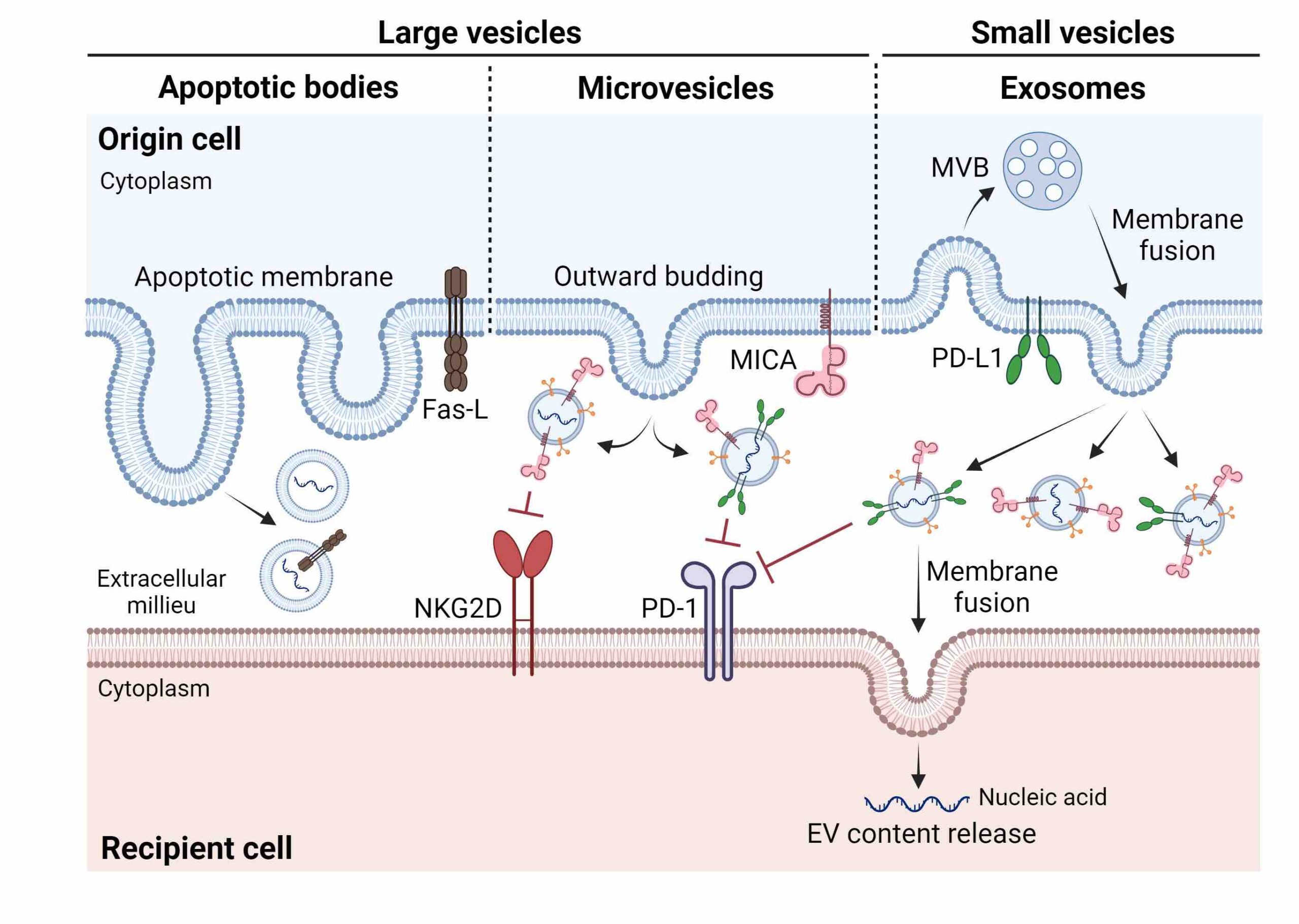Cancer Immunity
RESEARCH GROUPS
Mar Valés-Gómez
Group Leader
Research Summary
The «Tumor immune activation and evasion» Laboratory, led by Mar Valés-Gómez, studies the immune response against cancer and the molecular mechanisms of immune evasion, focussing on a type of innate lymphocytes, Natural Killer (NK) cells. Our ultimate goal is to apply basic research for the benefit of patients, and so, for our experiments we use human tumour models: on one hand, in vitro cell functional assays to evaluate NK cell activation approaches and, secondly, ex vivo analyses of samples from patients treated with immunotherapy.
An important avenue of research in our group is the study of immunomodulatory molecules recruited to extracellular vesicles (EVs) and we have developed several methods for the study of EVs in liquid biopsy.
We collaborate with academic and industrial partners.
Research Lines
Despite the discovery of a Natural Killer (NK) anti-cancer activity even before the description of the cell lineage, the translation of NK-cell based therapies to the clinic is complex because they are an extremely heterogeneous population, only certain subsets are active for tumour elimination and NK cells are generally short-lived. However, NK cells have clear advantages over other lymphocytes, since they do not cause toxicity in patients or graft-versus-host disease (GVHD). Currently, NK cell therapies are being used in clinical trials with promising results.
In our laboratory, we study bladder cancer treatment using Bacillus Calmette-Guérin (BCG), the vaccine for tuberculosis, to learn how to develop anti-tumour innate lymphocytes. In fact, our recent data demonstrate that NK cells acquire a particular phenotype after priming with BCG and they can selectively expand in vitro, keeping potent anti-tumour capacity for at least one month (Figure 1). We would like to identify BCG components involved in the activation of innate lymphocytes (NK and γδ T-cells) for cancer elimination.
Generation of long-lived BCG-primed anti-tumor NK cells (BpNK). BCG-primed NK cells incubated with extremely low doses of IL12, 15 and 21 selectively proliferate and maintain their function after stimulation with BCG. These cells overgrow other lymphocyte types to expand 200-fold, without any cell sorting, and kill a broad range of solid and hematological tumor cell lines. BCG-priming confers a unique phenotype to NK cells which become strong anti-tumor effectors. This enhanced fitness could be optimized for development of novel cancer cell therapy agents. See Felgueres et al 2024 and Esteso et al 2023. Created with BioRender.com.

The NKG2D system has been related for decades with tumour elimination and evasion mechanisms: in the clinics, NKG2D-ligand concentration in patient sera correlates with advanced stages of cancer and worse prognosis. However, the system is complex because these ligands can favour tumour immune escape when they are secreted. Our group described that NKG2D-ligands can have differential mechanisms for their release: metalloprotease cleavage and recruitment into extracellular vesicles (EVs), as well as their presence in biological fluids. Thus, we are studying the cellular mechanisms connecting these two processes for protein release using two models: the activating NKG2D receptor and ligands and PD1/PDL1. Also, we are evaluating the fate of EV-associated ligands during intercellular communication.

Biological role of extracellular vesicles (EVs). EVs carry biomolecules that mediate intercellular communication. For example, soluble and EV-associated PD-L1 and MICA can affect immune responses by interacting with their receptors at the surface of effector lymphocytes (NK and T cells). From Gonzalez#, Lopez-Borrego#, et al, 2024. DOI: 10.1080/10408363.2024.2309935
Publications
Group Members
Group Leader
Mar Valés-Gómez
Lab assistant
Rocío Manzanero Cancela
Postdoctoral Researcher
Maria José Felgueres Planells
PhD candidates
Silvia López Borrego
Inés Muniesa Martínez




